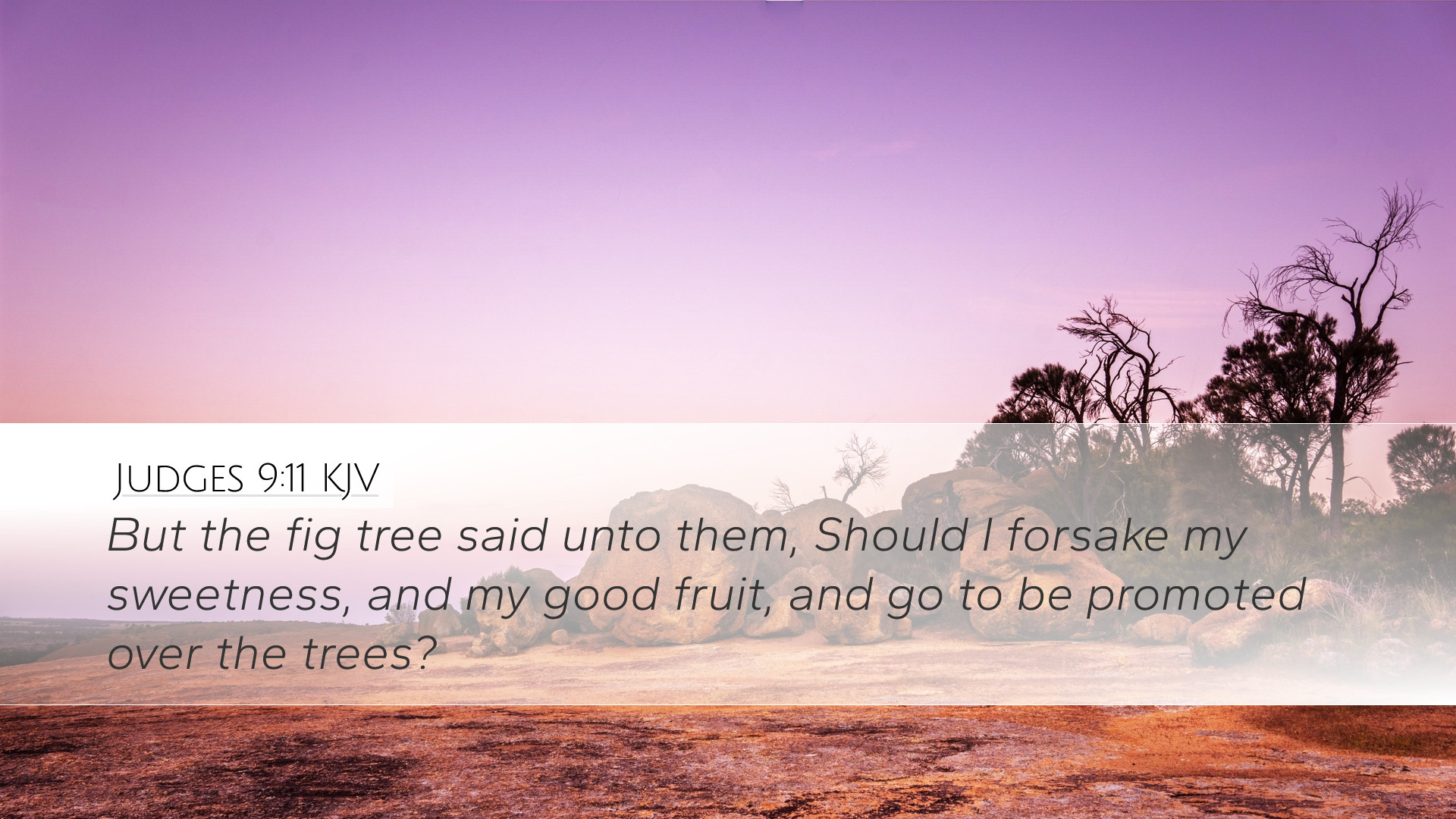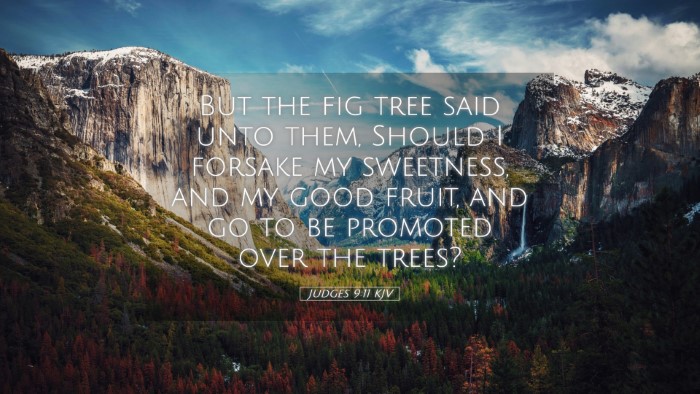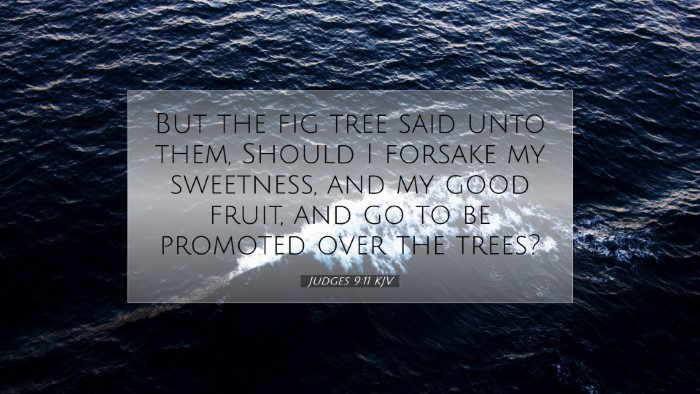Commentary on Judges 9:11
Judges 9:11 states: "But the bramble said unto the trees, If in truth ye anoint me king over you, then come and put your trust in my shadow: and if not, let fire come out of the bramble, and devour the cedars of Lebanon."
Contextual Overview
The Book of Judges encapsulates a tumultuous period in Israel’s history where the nation oscillated between faithfulness and rebellion against God. Judges 9 narrates the rise of Abimelech, son of Gideon, and serves as both a political treatise and a moral lesson. This verse is pivotal as it highlights the flawed nature of leadership and the consequences of engaging in corrupt political practices.
Analysis of the Verse
In this verse, the bramble represents a contrasting figure to the noble trees, emblematic of the dregs of society that seek power in Israel. Anointing a bramble king signifies a relinquishment of nobility and virtue.
Symbolism of the Bramble
Matthew Henry provides insight into the bramble's representation of those individuals who, despite their inferiority, seek positions of authority. The bramble, despite its lowly stature, attempts to assert itself as a suitable ruler, admonishing the trees to trust in its shadow as if referring to its supposed ability to provide protection or sustenance.
Trust and Protection
The phrase "put your trust in my shadow" implies a false sense of security. Albert Barnes elaborates on this, drawing an analogy between trusting in the bramble and misplaced faith in weak or corrupt leadership. True leadership should offer shelter and strength, characteristics which the bramble, representative of weakness, cannot fulfill. This serves as a stark reminder to seek leaders who are spiritually equipped rather than those who exhibit charm devoid of substance.
The Implication of Threat
Further, the bramble's ominous warning, “if not, let fire come out of the bramble,” signifies the destructive nature of corrupt governance. Adam Clarke elucidates this as a forewarning of inevitable judgment that befalls a nation choosing leaders unfit for the role. The imagery conjures the notion of God's judgment against disobedience, supported by the metaphor of fire, which often symbolizes purification and divine wrath in Scriptural texts.
Theological Implications
This verse invites reflection on the nature of leadership and the responsibility that comes with it. The narrative suggests that nations are to beware of leaders who offer only hollow promises. The bramble's offer is indicative of the consequences of rejecting God’s criteria for leadership.
- Leadership Qualities: God’s criteria for leadership emphasizes righteousness, integrity, and the ability to care for one’s people. The bramble lacks these qualities, showcasing how leadership should never be based solely on popularity or charisma.
- Divine Sovereignty: The warning from the bramble signifies the ultimate sovereignty of God in establishing rulers and the importance of discernment among the people regarding their choice of leaders.
- Warning Against Compromise: The plea for “rain” from brambles and the threat of conflagration is a metaphor for moral degradation. This serves as a subtle reminder that compromise can lead to catastrophic outcomes.
- Consequences of Unwise Choices: The concept of fire signifies judgment; thus, choosing unwise leaders leads the faithful down a path of destruction, signifying the reality of divine justice.
Conclusion
Judges 9:11 encapsulates a rich tapestry of lessons about leadership and the moral fabric necessary for ruling a nation. The bramble's inadequacy serves as a dire warning against choosing leaders based on superficial qualities. Matthew Henry, Albert Barnes, and Adam Clarke collectively aid in understanding the deeper implications of this poetic parable found within the broader narrative of Judges.
As leaders, churches, and communities reflect upon this verse, it becomes essential to seek leaders who are committed to godly principles that reflect divine justice and integrity. This passage stands as a timeless reminder to pursue spiritual discernment in any leadership selection, defining what it truly means to be under the shadow of a worthy king.


